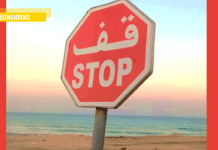E’ morto Helmut Schmidt, premier tedesco dal 1974 al 1982 e successore di Willy Brandt, oltre che suo ministro della Difesa e poi delle Finanze in anni di boom economico. Con Brandt è l’alfiere della distensione, che prese forma con la cosiddetta Ostpolitik. Una delle figure più importanti della storia tedesca del Dopoguerra, ha avuto la fortuna di vedere la riunificazione delle due Germanie per la quale aveva tanto lavorato. Quelli di Schmidt e Brandt sono gli anni dell’espansione del welfare tedesco.
Cresciuto in una zona povera di Amburgo, combatté nella Seconda Guerra mondiale e venne eletto per la prima volta nel 1953.
Abile diplomatico, Schmidt perseguì la distensione senza fare passi indietro: quando l’Unione Sovietica decise di posizionare le sue batterie di missili nei Paesi europei dell’est, autorizzò gli americani a impiantare missili a medio raggio sul suolo tedesco nonostante l’opposizione di una parte consistente del suo elettorato e grandi manifestazioni in tutto il Paese. I suoi anni al potere sono anche quelli in cui la R.A.F., il gruppo terroristico, colpiva duramente (gli anni di Schmidt sono anche quelli delle morti sospette dei terroristi in carcere).
Fortemente europeista, Schmidt insieme con i leader francesi ha promosso il Sistema monetario europeo nel 1979.
Nel 1982, il partito liberale alleato dei socialdemocratici cambiò alleato e votò il governo di Helmut Kohl.








